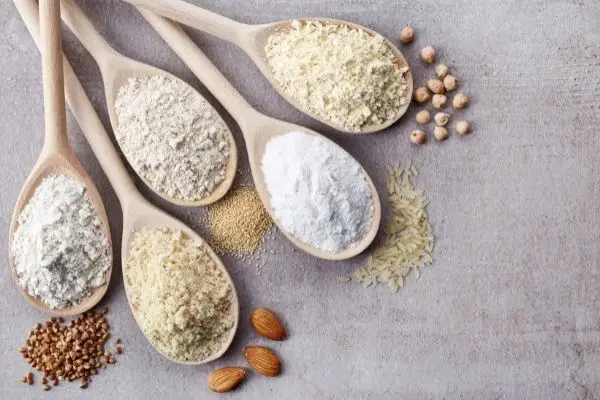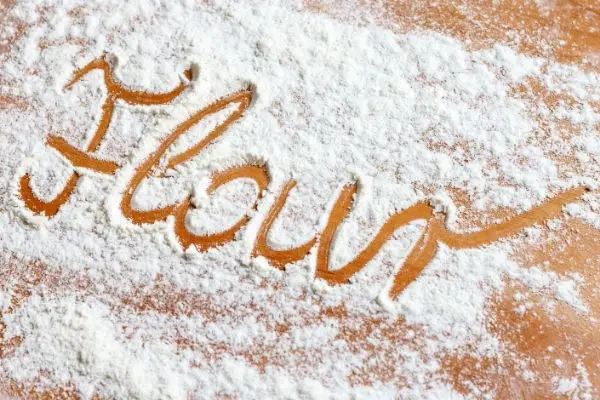Compostable or Not: Can Flour Be Composted?
My kids and I love baking! Dry goods are the backbones of our kitchen.

Ideally, we’d be able to use every grain of flour, sugar, and baking powder before it got contaminated or went rancid. In reality, though, that isn’t always the case.
Your first instinct might be to throw old flour straight in the trash. But have you ever stopped to wonder, “Can I compost flour?”
Flour is completely safe (and easy) to compost. Just be careful not to bog down your compost pile with a whole bag of flour at once.
Can You Compost Flour?
Yes. Flour is very easy to compost!
Whether you put it in a Bokashi bucket or directly in the compost, the answer is still yes!
If you find an old bag of flour in your cupboard or spill some while baking, DO NOT throw it in the trash. Even flour used for breading meat (be sure it is relatively clean!) or kneading dough can be saved for your compost pile.
Which types of flour are compostable?

All flour is compostable.
You can safely compost bleached or unbleached flour. It also doesn’t matter if the flour is made from whole grain.
Even alternative flours made from rice, almond, oat, and other grains are entirely safe and easy to compost. The process is the exact same, too.
What is the Best Way to Compost Flour?
Flour is extremely simple to compost because it is already broken down into very small particles. The biggest obstacle to effectively composting this material is the moisture level.
In theory, you could just throw flour onto the top of your compost heap and let it do its thing. But this isn’t the best idea.
(And NOT just because it’s likely to land on your clothes, giving you a nightmare to clean up.)
The thing is, flour will soak up any moisture it comes into contact with and form thick clumps. So if you toss a layer of flour onto your compost pile it will quickly congeal and suffocate the material below.
Rather than throwing a whole bag of flour into your compost at once, it’s best to thoroughly mix small amounts in at a time.
Combining the flour with something like wood chips or dried leaves pre-compost can prevent clumps from forming, as well.
Is Flour a Green or Brown Material?
Compostable materials can be broken into one of two categories. Maintaining a balance between these materials is the key to a healthy compost pile.
Green material is fresh waste like grass cuttings, salad greens, or animal manure. These materials tend to be very high in nitrogen and moisture.
Brown material is dry and/or partially decomposed waste like wood chips or straw. The primary reason for adding brown materials to your compost is to increase the amount of carbon. Without sufficient carbon, the microorganisms within the compost can’t do their jobs.
So which category does flour fall under? The answer actually isn’t that simple.

Many people view flour as a brown material because of its carbon content. But flour also contains high levels of protein and nitrogen.
In general, you should treat flour as a brown material when adding it to your compost. Avoid adding too much to your pile at one time and monitor for signs that your compost needs more carbon.
Keep in mind that alternative flours may have higher nitrogen levels than traditional all-purpose flour.
Frequently Asked Questions
Can flour bags be composted?
The vast majority of flour is sold in paper bags. Once the flour inside is used up or decanted into an airtight container, the paper bag can be composted.
Paper bags will eventually decompose on their own. You can speed up the process by ripping the bag into very small pieces before mixing it into your compost.
Just like the flour inside, the paper bags are carbon-rich brown matter.
If you’re unsure about placing old flour bags into your compost pile, be sure to recycle the materials instead.
Is old flour compostable?
Yes. Remember that composting is just a type of decomposition. While rancid flour won’t be any good in the kitchen, there’s nothing wrong with adding it to your compost heap to continue decomposing.
Is it safe to compost flour infested with weevils?
It can be nearly impossible to stop weevils — also known as flour bugs — from getting into open flour containers. While you probably don’t want to continue using flour containing these creepy crawlies, you shouldn’t just throw it in the trash.
It’s perfectly safe to compost flour and other dry goods that have been contaminated by these insects. But it’s best to remove the weevils first.
The most effective method is to freeze your flour before composting. This will kill off the weevils inside, preventing them from wreaking havoc in your garden later on.






